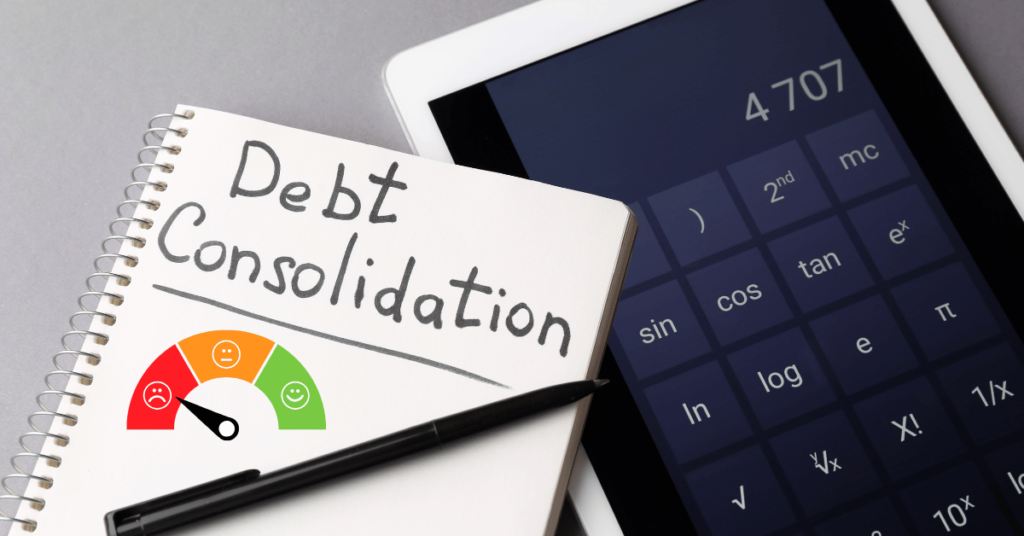Debt can be overwhelming, and many individuals seek effective ways to manage and consolidate their financial obligations. One popular method is using a home equity loan for debt consolidation. This article explores how to use a home equity loan for debt consolidation, the benefits, potential risks, and essential considerations before proceeding.
What is a Home Equity Loan?
A home equity loan is a type of loan that allows homeowners to borrow against the equity in their home. Equity is the difference between your home’s current market value and the amount you owe on your mortgage. Home equity loans are typically secured loans, meaning your home serves as collateral.
How to Use a Home Equity Loan for Debt Consolidation
Using a home equity loan for debt consolidation involves several steps:
1. Assess Your Home Equity
Before applying for a home equity loan, determine how much equity you have in your home. Most lenders allow you to borrow up to 80% to 90% of your home equity. For example, if your home is worth $300,000 and you owe $200,000 on your mortgage, you might have $100,000 in equity, allowing you to borrow up to $80,000 to $90,000.
2. Gather Your Financial Information
Lenders will require documentation of your financial situation, including:
- Proof of income
- Credit score
- Current debts (credit cards, personal loans, etc.)
- Existing mortgage details
3. Shop for Lenders
Not all lenders offer the same terms and interest rates for home equity loans. Compare offers from various banks, credit unions, and online lenders to find the best deal. Look for:
- Interest rates
- Fees and closing costs
- Loan terms (length of repayment)
- Customer reviews
4. Apply for the Home Equity Loan
Once you’ve chosen a lender, complete the loan application. Be prepared to provide the necessary documentation and answer questions about your financial situation.
5. Use the Funds for Debt Consolidation
If approved, you’ll receive the loan funds, which can be used to pay off existing debts. Focus on paying off high-interest debts first, such as credit cards or personal loans, to maximize your savings on interest payments.
6. Make Timely Payments
After consolidating your debts, it’s crucial to make timely payments on your home equity loan. Failing to do so can put your home at risk, as it serves as collateral for the loan.
Benefits of Using a Home Equity Loan for Debt Consolidation
1. Lower Interest Rates
Home equity loans often have lower interest rates compared to credit cards and unsecured personal loans, allowing you to save money on interest payments.
2. Fixed Monthly Payments
Home equity loans typically have fixed interest rates, meaning your monthly payment remains the same throughout the loan term. This predictability can help with budgeting.
3. Tax Deductible Interest
In some cases, the interest paid on home equity loans may be tax-deductible, making it a more attractive option for consolidating debt. Consult a tax professional for details based on your situation.
4. Access to a Larger Loan Amount
Home equity loans generally allow for larger borrowing amounts compared to personal loans, giving you the flexibility to consolidate multiple debts.
Risks of Using a Home Equity Loan for Debt Consolidation
1. Risk of Losing Your Home
Since a home equity loan is secured by your property, failing to make payments can result in foreclosure, putting your home at risk.
2. Increased Debt If Not Managed Properly
If you continue to use credit cards after consolidating, you might accumulate new debt, negating the benefits of the consolidation.
3. Closing Costs and Fees
Home equity loans often come with closing costs and fees, which can add to the overall expense of borrowing.
4. Potential for a Longer Repayment Period
While consolidating debts can lower monthly payments, it might extend the repayment period, leading to more interest paid over time.
Conclusion
Using a home equity loan for debt consolidation can be a viable solution for managing and reducing debt. By leveraging the equity in your home, you may achieve lower interest rates and simplified payments. However, it’s crucial to understand the risks and ensure you can manage your finances effectively to avoid further debt. Always consult a financial advisor before making significant financial decisions.
If you have any questions feel free to comment down below. We are always here to guide you!
FAQs
1. What is a home equity loan?
A home equity loan allows homeowners to borrow against the equity in their home, using their property as collateral.
2. How can I use a home equity loan for debt consolidation?
You can use a home equity loan to pay off high-interest debts, consolidating them into one fixed-rate loan with a lower interest rate.
3. What are the benefits of using a home equity loan for debt consolidation?
Benefits include lower interest rates, fixed monthly payments, potential tax-deductible interest, and access to larger loan amounts.
4. What are the risks of using a home equity loan?
Risks include the potential for losing your home if payments are missed, increased debt if credit cards are used again, closing costs, and longer repayment periods.
5. Should I consult a financial advisor before using a home equity loan for debt consolidation?
Yes, consulting a financial advisor can help you assess your financial situation and determine if a home equity loan is the right choice for you.




